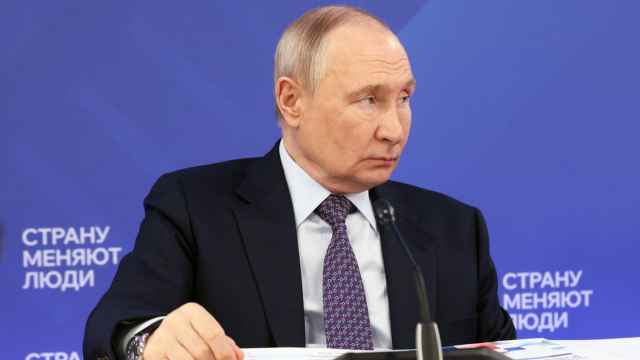Russia has removed references to a new American law that seeks to identify tax dodgers from a document on information sharing between the Finance Ministry and the U.S. Treasury Department, a news report said Wednesday.
Under the U.S. Foreign Account Tax Compliance Act, or FATCA, starting July next year, foreign financial institutions will have to track the activities of their American clients and from March 31, 2015, start sending reports to the U.S., in order to avoid a penalty by U.S. authorities.
The law is designed to uncover U.S. nationals who fail to meet their tax obligations by not declaring financial assets abroad.
Earlier this year, the Finance Minister Anton Siluanov said that Russia may sign an information sharing agreement with the U.S. by the end of the year, effectively agreeing to comply with the law.
All references to the U.S. law are now taken out of the document, Vedomosti reported Wednesday.
But it does not differ much from the standard FATCA agreement, and all conditions remain the same, Dmitry Chistov, risk & compliance manager at KPMG Russia said.
Russian financial institutions are facing the task of identifying clients who are American citizens and reporting their activities to the U.S. Internal Revenue Service, or risk incurring a 30 percent withholding tax on dividends and interest paid by U.S. corporations and proceeds of any asset disposal income generated in the U.S.
Some of the criteria by which account holders will be flagged include having American citizenship, place of birth, mailing address or telephone number; the existence of standing instructions to transfer funds to an account in the U.S.; a power of attorney or signatory authority granted to a person with a U.S. address and an in-care-of or a hold mail address in the U.S., an explanatory note about FATCA released by KPMG revealed.
All accounts with a balance of $50,000 or more will be monitored, but accounts with $1 million or more will require extra attention, obliging the banks to collect and keep hard copies of all documents related to the account for a period of five years.
For many banks it will be an impossible task, Alexander Zakharov, partner at Paragon advice group, told Vedomosti.
Depending on the type of the agreement signed, Russian financial institutions will have to deal with the IRS directly, or send the data to the Russian Federal Tax Service, which will then pass it on to its American counterpart.
Contact the author at [email protected]
A Message from The Moscow Times:
Dear readers,
We are facing unprecedented challenges. Russia's Prosecutor General's Office has designated The Moscow Times as an "undesirable" organization, criminalizing our work and putting our staff at risk of prosecution. This follows our earlier unjust labeling as a "foreign agent."
These actions are direct attempts to silence independent journalism in Russia. The authorities claim our work "discredits the decisions of the Russian leadership." We see things differently: we strive to provide accurate, unbiased reporting on Russia.
We, the journalists of The Moscow Times, refuse to be silenced. But to continue our work, we need your help.
Your support, no matter how small, makes a world of difference. If you can, please support us monthly starting from just $2. It's quick to set up, and every contribution makes a significant impact.
By supporting The Moscow Times, you're defending open, independent journalism in the face of repression. Thank you for standing with us.
Remind me later.





